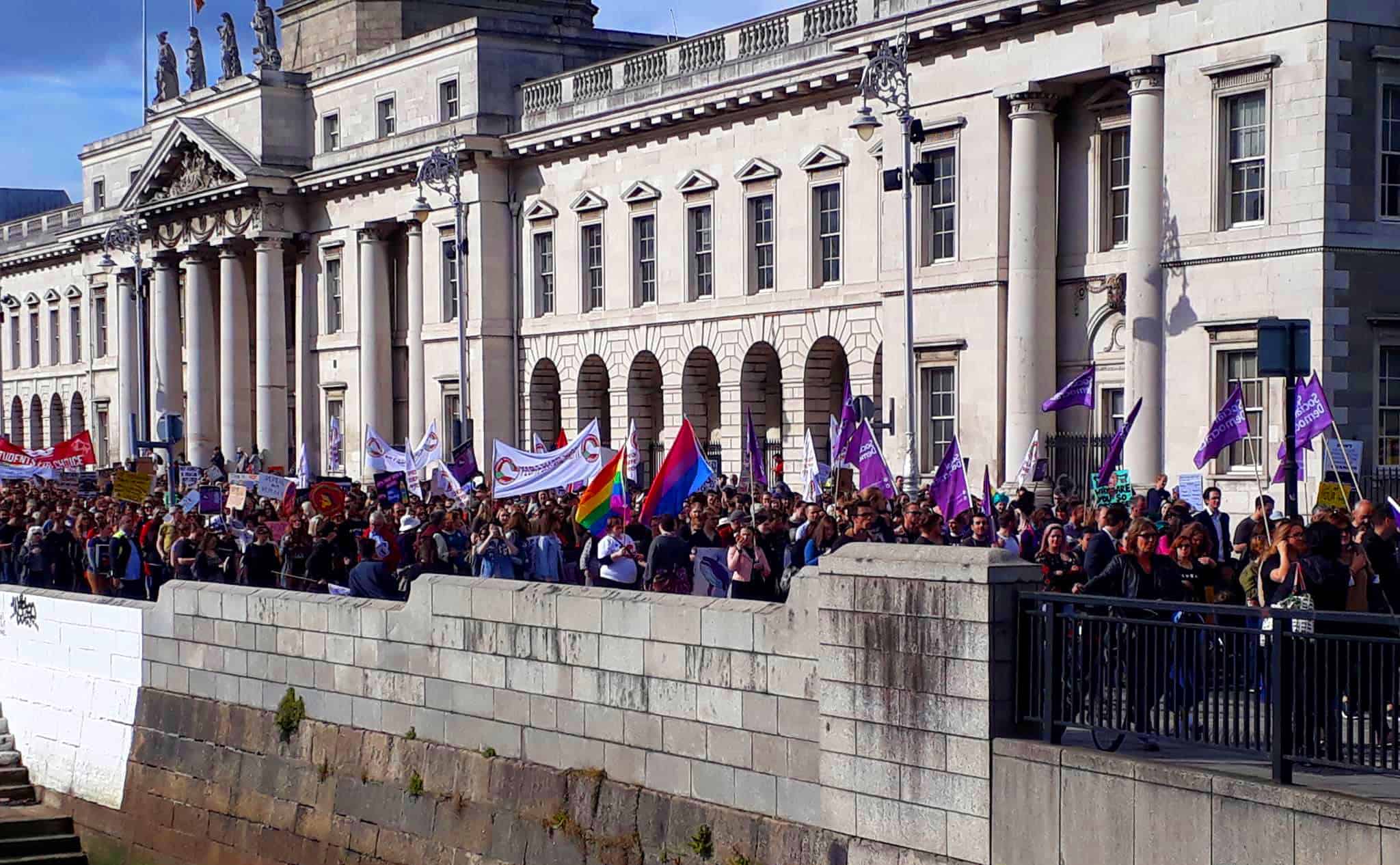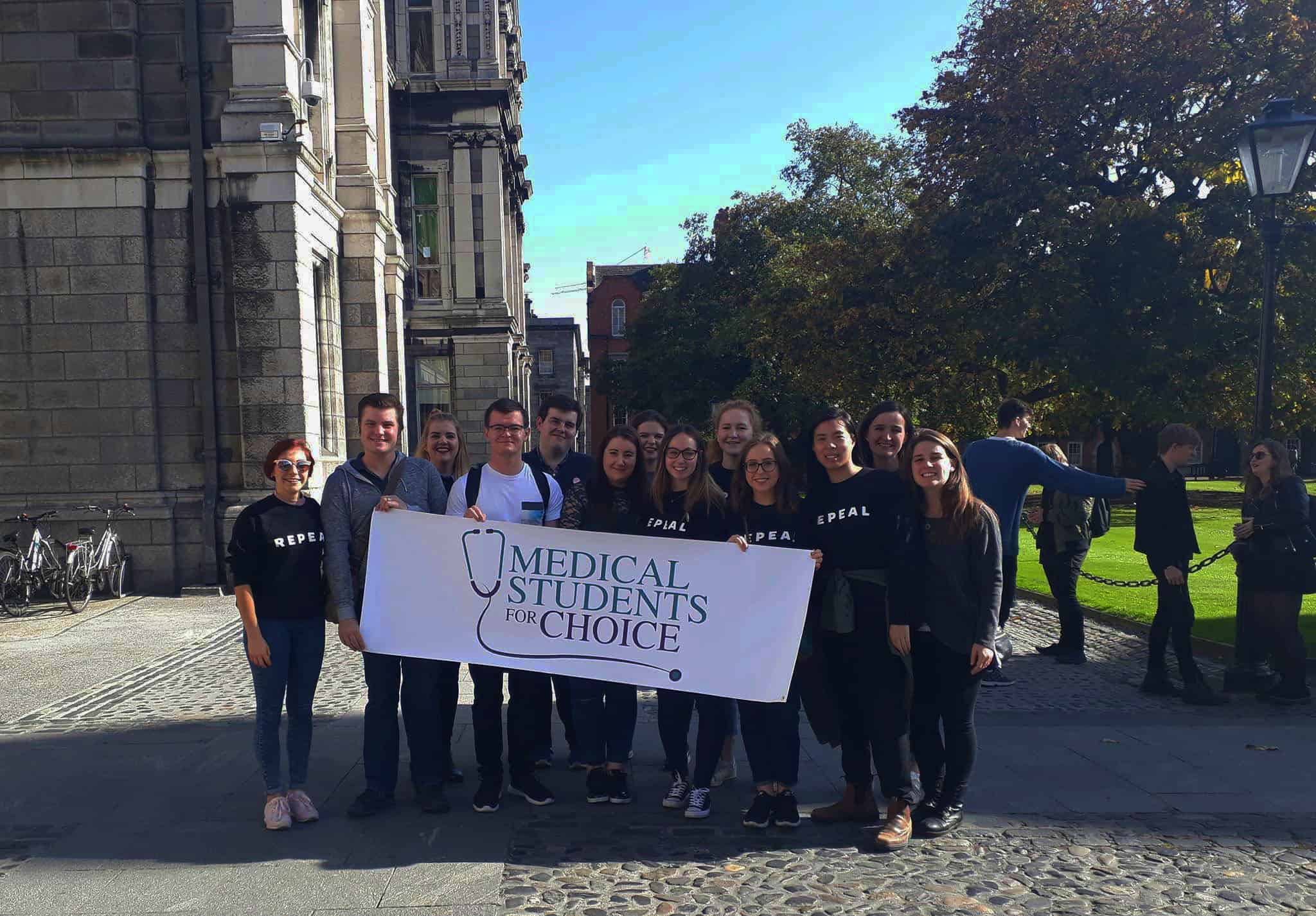In 1983, Ireland held a referendum on what became the 8th amendment to their constitution. This vote determined that the fetus’s right to life was equal to that of the mother. 35 years have passed in Ireland since the 8th amendment formally outlawed abortion in the Irish constitution, but since then there has been a perceived shift of the younger generation becoming more progressive. On May 25th, Ireland will hold another referendum, this time to repeal the 8th amendment and make abortion legal in Ireland.
Our four Irish chapters have been educating medical students about reproductive health and rights for years but have never been able to provide abortions in their own country. With the possibility of the 8th amendment being repealed, these Irish students may become the first generation of abortion providers in their country. I spoke with some of our Irish chapters to understand why this referendum has come about, their personal beliefs on abortion, and their hopes for the future of abortion provision in Ireland.
The Setting: Recent History and Religion
Since the referendum in 1983, Ireland has voted several times to establish guidelines about abortion. In 1992, the 13th amendment stated that the government could not limit travel of an individual abroad to have an abortion. Similarly, the 14th amendment made it legal for health professionals to provide information about abortions abroad. According to the UK Department of Health, nearly 170,000 Irish women travelled to the UK to have an abortion since 1980. In 2013, legislation was passed to allow abortions in cases of threat to the life of the mother (including suicide), but, according to Matthew Parsons, a student at the School of Medicine Trinity College Dublin, “due to ambiguity in the law… healthcare professionals are hesitant to attempt abortion even when medically indicated.” An MSFC Student Leader at the University of Limerick, Róisín Gryson, pointed out that all these amendments have, “resulted in people in Ireland not getting full access to medical care whilst pregnant and [have] resulted in tragic deaths”.
Impacting every aspect of this issue is the Catholic Church. Ireland is a predominantly Catholic nation with a historic relationship with the Church, which strongly opposes abortion. Catholicism has long been an important part of Irish society and has influenced political matters even before Ireland became a country. Our Irish members noted that the Catholic Church was involved in the introduction of the referendum in 1983, and the result of the referendum was influenced by religion’s role in the lives of Irish citizens. Though many people are both religious and pro-choice like those in the organization Catholics for Choice, religion played a large role in the successful campaign to restrict abortion.
Because the 8th amendment was passed 35 years ago, no one under the age of 55 voted in that referendum. Many note that the younger generation in Ireland is more progressive on social issues, as evidenced by contraception and gay marriage becoming legal. But even with a perceived change in attitudes, abortion stigma remains a very strong force. To fight this, Róisín noted that “as the referendum draws closer, brave women are coming forward and telling their personal stories”. In Her Shoes is a Facebook page that shares women’s abortion stories to bust myths surrounding abortion.
Today’s Activists
Róisín said her passion for abortion access stems from her “fundamental thought that all people deserve patient autonomy and the right to make their own choices about their healthcare.” Our Irish chapters spread their passion and fight stigma everyday by putting on events educating their peers about abortion, reproductive health, and rights.
This April, Trinity College Dublin’s MSFC chapter hosted an event called ‘Chats for Choice’, where representatives from Doctors for Choice, Lawyers for Choice, Psychologists for Choice, among others, discussed the referendum and the issues surrounding the vote, including the spread of misinformation. Together, all the representatives of these groups signed a statement on repealing the 8th amendment and promised to, “combat the rise and spread of sensationalism, with evidence based information surrounding reproductive healthcare”.
At the University of Limerick, Róisín and other MSFC members at her medical school have been encouraging students to register to vote in time to participate in the referendum, and Róisín herself has gotten canvassing training to advocate for the Repeal the 8th movement. As Katherine Hughes from Trinity College Dublin put it, “doctors and med students have a role and responsibility to engage and inform the general public on the health implications of the current law.”
These medical students are committed to abortion legalization and access, which makes me optimistic about the result of the referendum on May 25th. Matthew hopes that, “abortion will be allowed in Ireland without the need for an abortion panel of physicians.” Likewise, Róisín wishes, “that Ireland in the future will be a place where everyone has control over their reproductive rights and that doctors can provide for their patients according to their wishes and best interests”.
If the 8th amendment in Ireland is repealed and abortion becomes legal, Medical Students for Choice members will be the first generation of abortion providers in their country. Róisín reflected, “Prior to medical school I had always thought I would not be comfortable providing abortions. However, I have come to realise that it will be my duty as a medical professional to provide the best care I can for my future patients.” Should Ireland legalize abortion, our members will make sure it becomes accessible and a reality.

